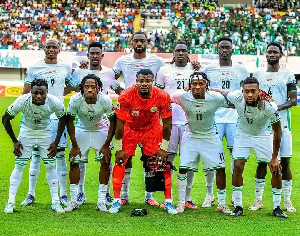The Manufacturers Association of Nigeria (MAN) has assured local and foreign investors of its commitment to advocating for a business environment that supports local content development, fair competition, access to raw materials, and technology.
The association made this known at the West Africa Coating Show (WACS), where it emphasised that MAN will continue to work closely with policymakers to eliminate barriers and promote a regulatory environment that supports innovation and industrial growth.
The WACS, organised by DMG Events in partnership with the Paints Manufacturers Association of Nigeria (PMA), was held recently in Lagos, where the coatings industry in West Africa converged to showcase the latest innovations, equipment, and raw materials in the field.
According to the organisers, the event featured about 110 leading brands from more than 12 countries.
The three-day event offered stakeholders access to cutting-edge knowledge, transformative partnerships, and emerging market intelligence that could drive product competitiveness, export readiness, and environmental compliance.
In his address, MAN Director General, Segun Ajayi-Kadir, commended the organisers for the maiden edition of the programme.
Ajayi-Kadir, represented by Oluchi Odimuko, Assistant Director, Sectoral and Regulatory Affairs of MAN, noted that the association acknowledges the critical roles the coatings and allied industries play in the broader industrial ecosystem, from infrastructure to automotive, construction, and packaging, adding that coatings are indispensable to product durability, aesthetics, safety, and environmental performance.
The MAN boss recognised the contribution of local and international participants, who have continued to invest, partner, and innovate within the West African market, assuring that MAN remains fully committed to advocating for a business environment that supports local content development, fair competition, and access to raw materials and technology.
Paddy O’Neill, Associate Vice President, DMG Events appreciated PMA for the partnership, noting that the show was the ideal platform to engage with influential decision-makers and leading industry players, meet with new and existing customers from the region; gather insight on the latest solutions available in the paint and coatings market; and have meaningful, face-to-face business interactions.
“We are delighted to welcome 110 exhibitors to this launch event, from 12 countries- including Nigeria, China, Canada, Egypt, India, Italy, Libya, South Korea, Turkiye, United Arab Emirates & the United States, showing that Nigeria and the wider West African region is a market of key interest internationally.
“The conference and business presentation hub provided the perfect opportunity for attendees to gain insights into the latest industry products, innovations, and trends; exchange ideas with industry leaders; and build a strong network in the industry.”
In his remarks, Chairman, PMA Nigeria, Abimbola Babatunde, said West Africa is blessed with abundant natural resources, which should be harnessed and used for the development of the sub-region and for the good of the people, as this will reduce the ‘japa syndrome,’ create more employment opportunities for the youths, and eliminate vices.
He noted that multinational companies across the globe are looking at emerging markets and West Africa, the Middle East, South East Asia, and South Africa are the new destinations, adding that Nigeria and Ghana are the major emerging markets in West Africa.
“The two countries are experiencing significant growth and development in the critical areas of their economies, despite the challenges they face. We believe that after the show, multinational companies will expand their businesses to the West African region and, indeed, Nigeria.
The show offered both exhibitors and visitors more rewarding experiences, while opening more business opportunities for the exhibitors (raw materials, machineries, laboratory equipment ( suppliers/ distributors), stakeholders, and paints manufacturers in West Africa.”
He enjoined governments, corporate entities, estate developers, property owners, and individuals in the sub-region to imbibe the culture of maintenance through regular painting and repainting.
“Painting beautifies the object, giving it a fresh and beautiful look and gives the immediate environment a new look. Painting also adds to the value of the property.”
The Director General/Chief Executive, Standards Organisation of Nigeria (SON), Ifeanyi Okeke, noted that the event remains a vital platform for fostering innovation, collaboration, and excellence within the paints and coatings industry.
The SON DG, who was represented by Mr Paul Pankes, Group Head, Chemical Technology of the organisation said the programme aligns with the organisation’s mandate of promoting quality safety, and environmental sustainability through standardisation and compliance.
He said over the years, SON has worked closely with stakeholders, including the PMA, to ensure the implementation of critical standards, such as the 90ppm lead limit in paints, aimed at protecting human health and the environment.
He reaffirmed the organisation's commitment to supporting manufacturers, innovators, and entrepreneurs in achieving global competitiveness through adherence to international best practices.
The Director General /Chief Executive Officer, Raw Materials Research and Development Council (RMRDC), Prof. Nnanyelugo Martin Ike-Muonso, pointed out that the paints industry remains a vital component of national industrial development, contributing significantly to employment generation, housing, construction, automotive finishing, and national aesthetics.
He said as an institution with the mandate to promote the development and optimal utilisation of local raw materials as inputs for industries, the RMRDC has, over the years, invested heavily in research and development and the promotion of local content to strengthen the industry’s value chain.
Oluwasola Marinho, Coordinator, Lagos RMRDC, who spoke for Ike-Muonso, said the council has actively engaged industry stakeholders through policy dialogues, technical workshops, and exhibitions, ensuring that research outcomes are effectively transferred to end-users and manufacturers.
He disclosed that the Council is also in the process of upscaling pilot projects on resin production using indigenous feedstocks, aimed at bridging a critical gap in the local supply chain and significantly reducing foreign exchange outflows associated with resin imports.
He said by harnessing the nation’s natural resources and aligning them with modern production techniques, the Nigerian paints industry can become self-reliant, competitive, and export-oriented.
Business News of Sunday, 20 July 2025
Source: www.thenationonlineng.net













